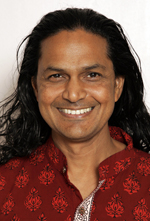Prof Dennis Francis delivers keynote address at colloquium on homophobia and transphobia
 |
| Prof Dennis Francis |
Prof Dennis Francis, Dean of the Faculty of Education, delivered the keynote address at a colloquium focusing on homophobia and transphobia in schools.
The UNESCO and Gay and Lesbian Memory in Action (GALA) is hosting Transforming Classrooms, Transforming Lives: Combating Homophobia and Transphobia in Education, at the University of Johannesburg.
Looking specifically at the Southern African context, this multi-disciplinary event builds on the highly successful 2012 Colloquium on Challenging Homophobia and Transphobia in South African Schools.
The colloquium allows educators, policy makers, researchers and activists from across Southern Africa to discuss the scope and impact of homophobia and transphobia in the education sector. It also creates a space for delegates to present new research, to discuss recent front-line activities, to reflect on good practices and to workshop future interventions.
Prof Francis’ paper on challenging heterosexism and heteronormativity in a South African school, was recently published in the South African Journal of Education.
For his research, Prof Francis looked at how learners understand and portray gay and lesbian characters and heterosexism by means of Participatory Theatre. He also did research on how teachers in South African schools position themselves on teaching about sexual diversity.
Prof Francis’ research papers also points out how schools promote compulsory heterosexuality and that homosexuality is something to be hidden and kept separate from teaching, learning and daily school life.